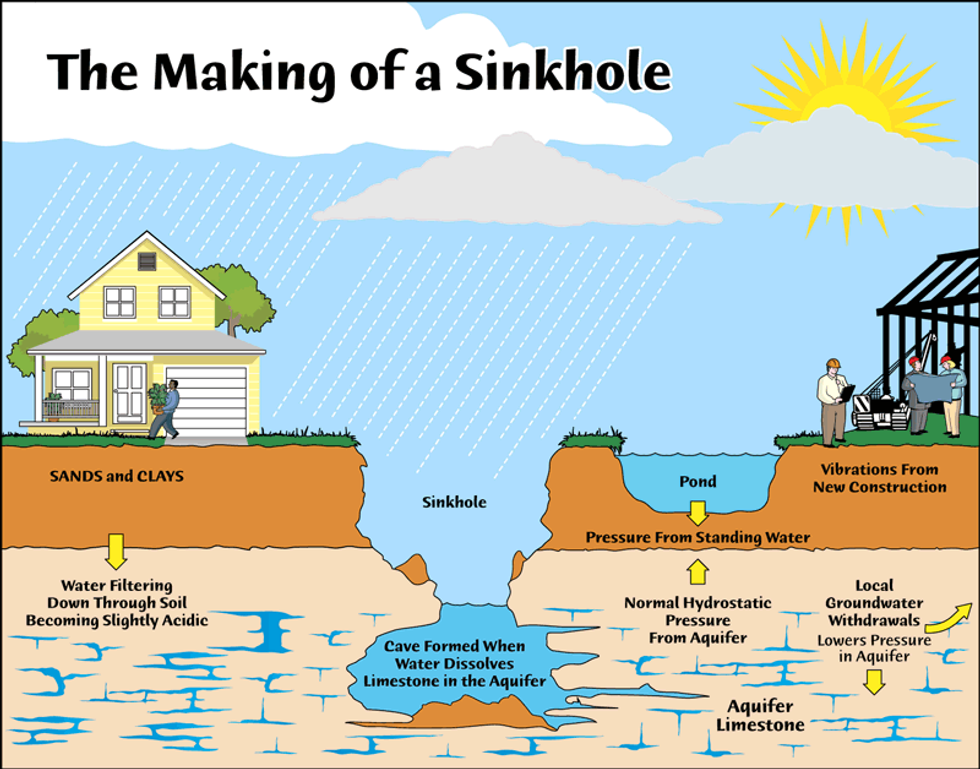Water — we need it to survive, and it is a precious resource. What do I mean by a precious resource? Isn't water readily available? It may seem like there is plenty of water for us to drink with all the bottled water brands, water filters and fill-up stations we see, but more and more, our sources of freshwater are diminishing. Can you guess how? Yep, you guessed it! It's our fault!
Let me rephrase that: water sources are increasingly becoming contaminated due to human activity meaning logging, deforestation and even industrial companies sending factory waste into rivers, lakes and streams. Our planet is made up of mostly water at about 96.5 percent, but only about 1.7 percent is potable water that we can drink.
See, the water we drink comes from something called an aquifer, essentially an underground storage unit of fresh water. Once an aquifer is contaminated by either oil or other chemicals harmful to humans, we must abandon it and turn to other sources of drinking water. But when we exhaust too many of these aquifers and sources, where will we get our drinking water? That, my friends, is a great question.
So, in case you have not heard, a major sinkhole recently opened under a fertilizer plant near Tampa, Florida. The fertilizer plant just so happened to be located near Florida's main source of freshwater, and about 980 million liters of contaminated water is flowing into this water source. Basically, this is very bad.
A sinkhole happens when the soil does not have enough water and moisture in it and it becomes very unsteady. These are not unfamiliar to Florida, but the most recent one has done quite a bit of damage.
Now the question is, why should you care?
Well, either Florida will have a water crisis where we go buy bottled water similar to what is happening in Flint, Michigan, or we try to invest in other means of creating freshwater. One such method is desalination, where ocean water is pumped through a large machine to filter out all the elements that prevent humans and animals from drinking it. That sounds great right?
Except for the fact that the excess salt could be used to make table salt, but instead is dumped right back into the ocean causing major issues for ocean ecosystems.
Overall, this sinkhole will greatly influence Florida and its already present water shortage. We have a long road ahead of us in searching for more ways to find or create fresh water without continuing to destroy planet Earth. After all, there is no planet B.






















